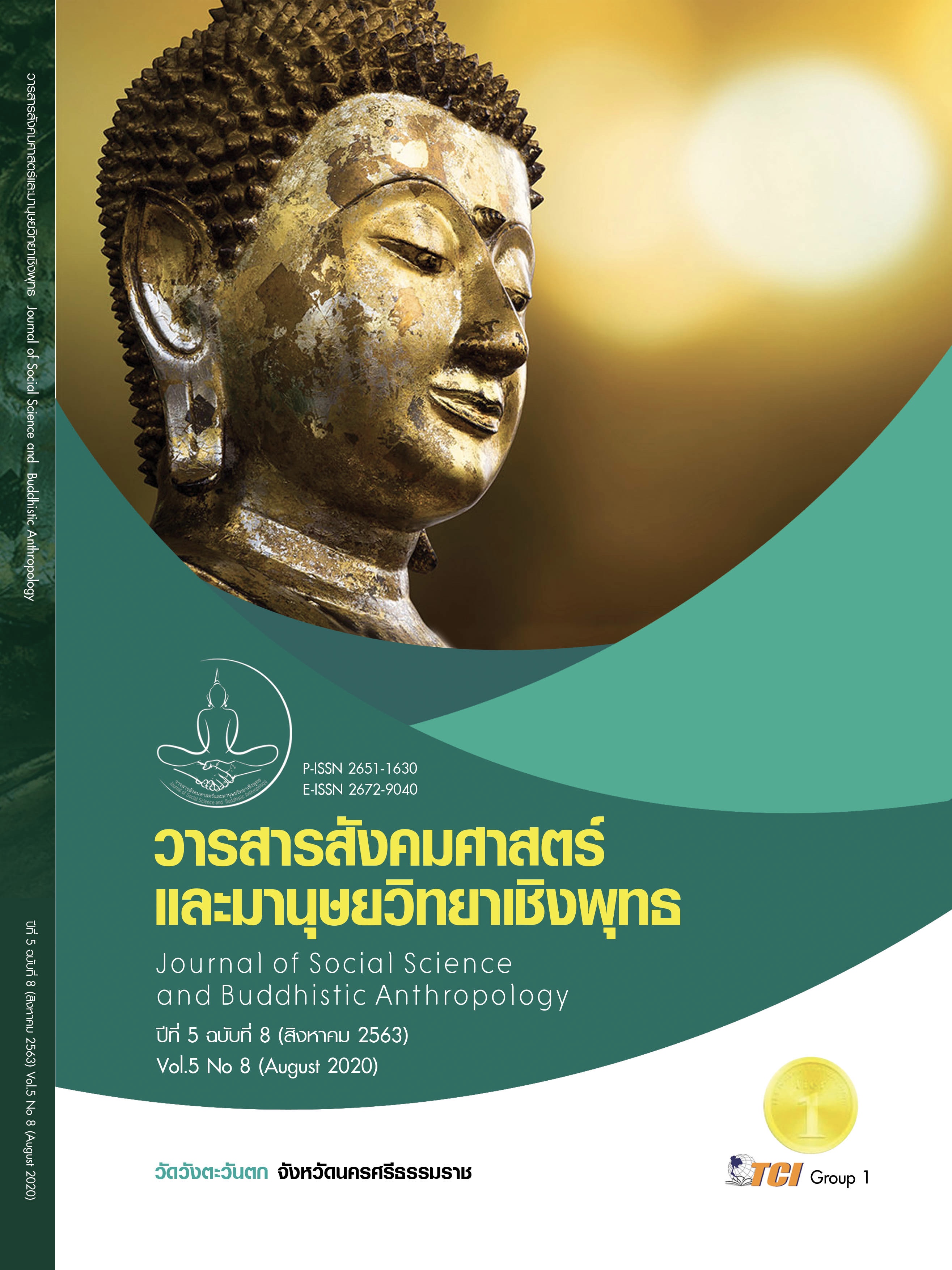TRANSPARENCY AND ACCOUNTABILITY OF THE CUSTOMS DEPARTMENT OF NGV BUSES
Keywords:
The Customs Department, Transparency, Accountability, NGV busesAbstract
The objectives of this research are: 1) To study the transparency and accountability of the Customs Department., 2) To study the Factors that contribute to the transparency and accountability of the Customs Department and 3) to present the transparency and accountability guidelines of the Customs Department. This research is a descriptive, analytical and qualitative one, by using in-depth interview techniques and focus group. The key informants, consisting of policymakers Assistant to Director and Deputy Director General of the Customs Department or the assigned person, Inspector Policy of Compliance Group, Customs officer or the assigned person stakeholder groups along with Focus group conversation with Importers go through customs. And experts on importing goods through customs. The results of this research finding found that 1: Roles, duties and conditions of the Customs Department in the administration of import supervision for transparent are verifiable according to the good organization management principles of the Department. 2: the study of factors that cause the organizational management problems found that the executives of the Department have a strong intention and a clear policy for the administration of the Customs Department, with honesty, morality, transparency and responsibility for promoting the standardization of operations 3: on suggestion aspect, in order to be transparent and verifiable, the Customs Department has to adjust the methods, procedures, systems, and personnel. The service personnel, considered an important factor, must be adjusted with the service mind-set standard, in providing services willingly, no discriminating and friendly services for recipients as well as creating a good atmosphere in services providing, so that clients would be satisfied
References
ซูจาส ไอบราฮิม. (2553). การตรวจสอบทุจริตการประเมินค่าศุลกากรบนพื้นฐานตัวอย่างถ่วงน้ำหนักเครื่องจักรเวกเตอร์สนับสนุนแบบกลุ่มเดียว. ใน ดุษฎีนิพนธ์ปรัชญาดุษฎีบัณฑิต สาขาวิชาเทคโนโลยีสารสนเทศ. มหาวิทยาลัยเทคโนโลยีพระจอมเกล้าพระนครเหนือ.
บุญเกียรติ การะเวกพันธุ์ และคณะ. (2557). การบริหารงานภาครัฐแนวใหม่. เรียกใช้เมื่อ 16 ตุลาคม 2562 จาก http://wiki.kpi.ac.th/index.php?title=การบริหารงานภาครัฐแนวใหม่
เบญจ์ พรพลธรรม. (2553). การจัดการความโปร่งใสและการมีส่วนร่วมในบริการสาธารณะขององค์กรปกครองส่วนท้องถิ่น. ใน ดุษฎีนิพนธ์ปรัชญาดุษฎีบัณฑิต สาขารัฐศาสตร์. มหาวิทยาลัยรามคำแหง.
ปธาน สุวรรณมงคล. (2558). การบริหารงานภาครัฐกับการสร้างธรรมาภิบาล. กรุงเทพมหานคร: บริษัท แก่นจันทร์การพิมพ์ จำกัด.
วศิน ซื่อสุทธจิต. (2559). การใช้ธรรมาภิบาลในธนาคารพาณิชย์ไทย. ใน ดุษฎีนิพนธ์ปรัชญาดุษฎีบัณฑิต สาขาวิชาบริหารธุรกิจ. มหาวิทยาลัยเกษตรศาสตร์.
สมเกียรติ อัญชนา. (2556). คอร์รัปชันกับความรับผิดของพนักงานเทศบาลไทย : อิทธิพลของลักษณะ ตำแหน่งหน้าที่ การตรวจสอบถ่วงดุล ความโปร่งใส และบริบททางสังคม ในรูปแบบจำลองสมการโครงสร้าง. วารสารมนุษยศาสตร์สาร , 14(1), 153-168.
สำนักข่าวอิศรา. (2560). เปิดหนังสือขสมก.ถึงอัยการสูงสุด กรณีปัญหารถเมล์NGV กับท่าที 'รบ.ประยุทธ์'. เรียกใช้เมื่อ 16 ตุลาคม 2562 จาก https://www.isranews.org/isranews-scoop/53270-reportoiiuu.html
กรมศุลกากร. (2556). รายงานประจำปี กรมศุลกากร 2556. เรียกใช้เมื่อ 16 ตุลาคม 2562 จาก https://www.customs.go.th/list_strc_annual_report.php?ini_content=annual_report&ini_menu=menu_public_relations_160421_05&left_menu=menu_about_160421_03_160421_02&lang=th&left_menu=menu_about_160421_03_160421_02
David B. Szabla. (2017). The Palgrave Handbook of Organizational Change Thinkers. Switzerland: Palgrave Macmillan.
Henri Fayol. (2013). General and Industrial Management (Reprint). Eastford: Martino Publishing.
Max Weber. (1947). The Theory of Social and Economic Organization. New York: Oxford University Press.









